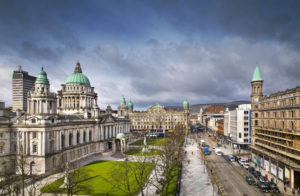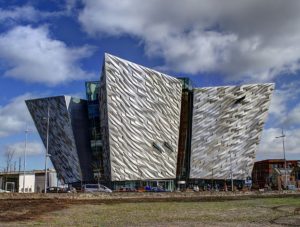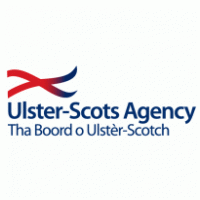Welcome to the 2018 Agnes Scott Alumnae Trip to Ireland and Scotland! I’m starting to get really excited about the trip, and I hope you are, too. Over the next few weeks I’ll be posting information about the trip, along with some of my own thoughts and observations. I welcome your suggestions as to what I should write about.
Scroll down to see earlier posts–the newest one is always on top. I’d love it if you would use the “Comment” function just to let me know you are reading or to add your thoughts and questions.
Let’s start with the first four days of the trip! The brief introduction is followed by reading and film lists and a preliminary itinerary for the first part of the trip.
Belfast During and After The Troubles

Like Derry, Belfast was an epicentre for The Troubles from the late 1960s to 1998, and the peace agreement of that year was negotiated in the capital city. At one time, the city was dotted with barricades, police vehicles looked like armored tanks, certain neighborhoods were off limits to certain groups, and tourism was virtually unknown. Today, Belfast is a major tourist destination with three “hop-on-hop-off” tour bus companies and a booming international film industry. Drawing on literature, history, and film, we will examine how the conflict came to be, what happened in Belfast and in Northern Ireland during that period, how the conflict shaped the city, and how Belfast has fared since the Belfast or Good Friday Agreement in 1998.
The first four days of our trip are modeled on my “Journeys—Northern Ireland: The Trouble with Peace,” a travel immersion course that was part of SUMMIT in 2017. The Belfast Peace Agreement of 1998 sought to bring an end to The Troubles, a thirty-year period of sectarian strife in Northern Ireland (NI). Eighteen years later the violence has abated, civil rights have been gained, the cities are rebuilt, the economy has improved, and rising tourism is only one of many “peace dividends.” But how deep do these changes go? Can the problems of the past be forgiven and forgotten? What are the successes and the challenges of peace? How are changing demographics, new racial and ethnic diversity, and globalization complicating life in NI? To find answers to these questions, we’ll visit sites, museums, and monuments that tell the story of The Troubles, and we’ll talk to Northern Irelanders about the realities of the conflict, peace, and reconciliation.

Belfast was at one time on the U.S. State Department’s list of places NOT to visit; today it has a rich cultural and civic life and a thriving tourist industry. We’ll tour the city focusing on the events of the conflict and the ways in which it still marks the cityscape today, as well as on its industrial, scientific, and cultural heritage. A panel of former paramilitaries will help us understand why they were involved then and what they are doing now to reject violence and move forward in peacetime. During our tour of the Linen Hall Library, we will explore this bastion of free thought in the middle of a city divided by sectarian strife. As the library’s web site says,
The Linen Hall Library is a truly unique institution. Founded in 1788, it is the oldest library in Belfast and the last subscribing library in Ireland. It has a radical and ‘enlightenment’ foundation, and ever since has prized its independence and has maintained the principle that its resources are owned by the community for the community.
Another highlight of our trip will be visiting with proponents of the Ulster-Scots language (Ulster Scots Agency) and the Irish Gaelic language (Turas Irish Language Programme), who see language learning as a way to build community within and across borders. 
While we may not come away with all of our questions answered, I think you’ll find you will have a much better understanding of the history and current situation of Northern Ireland, the successes and failures of the post-conflict era, the region’s rich and complex cultural heritage, and the role Northern Ireland plays today in the United Kingdom, Europe, and the world.
Clicking on the green words will take you to a document or an online source (audio, video, web site, etc.)
Readings—fiction
The Way Paver by Anne Devlin and Naming the Names by Anne Devlin
When we are in Belfast we’ll have an evening with Anne Devlin.
The Wall Reader by Fiona Barr
These come from a great collection called The Hurt World: Short Stories of The Troubles ed. Michael Parker, Blackstaff Press LTD. 1995.
Readings—history (if you’re interested and want to know more)
There are many good accounts of The Troubles. I’ll recommend two here. The first is a detailed, fair, readable account, updated in 2012. The second is written by a journalist and tells the story well—it might be the place to start.
McKittrick, David and David McVea. Making Sense of the Troubles: A History of the Northern Ireland Conflict. Viking, 2012.
Coogan, Tim Pat. The Troubles: Ireland’s Ordeal and the Search for Peace. St. Martin’s Griffin, 2002.
Films
There are many good films about The Troubles. I’ll list a few of the major ones here. Again—view at your leisure.
The Boxer, dir. Jim Sheridan, 1997.
In the Name of the Father, dir. Jim Sheridan, 1993.
Hunger, dir. Steve McQueen, 2008.
Some Mother’s Son, dir. Terry George, 1996.
The Crying Game, dir. Neil Jordan, 1992.
’71, dir. Yann Demange, 2014.
Brief and tentative itinerary
June 3–arrival in Dublin and break fast at the Man O’War historic pub; drive to Belfast.
June 4–Belfast City Tour, murals; lunch in city centre; visit with Linda Ervine at Turas (Irish language as peacebuilding)
June 5–Coiste panel at our hotel (former paramilitaries talk about the conflict and post-conflict); lunch and talk at the Ulsters Scots Agency (Ulster Scots language); afternoon free; theatre evening at Lyric (Brian Friel’s Lovers Winners Losers).
June 6–free day; Antrim Coast drive as one option; author Anne Devlin will give a reading and talk after dinner at our hotel.
June 7–Ferry to Scotland; visit Culzean Castle; overnight Ayr.

I have reading to complete; but, I’ve watched all the movies, except Hunger. Hoping to find a copy soon.
Wow, Pam, you are on top of things! Check out the films I’ve recommended under Online Resources.
I tunes has it. Very very dark.
I have never been on a trip with a website, how official 🙂
I visited Belfast 7 or 8 years ago, it will be impactful. The folks there have moved on for the most part. I was struck when I went for a run outside the center of downtown with the number of stares I received that said to me “who is this guy and why is he in my neighborhood”
Ellen and I are excited for Round 2, we will try to behave !!
Chris, Belfast seems to take another leap forward every time I go back. No place I know has changed so much in the 20 years I’ve been traveling there.
The website is a great build-up to the trip. I am starting to get excited especially about getting a break from the office.
Kim, We will all enjoy being in another world without responsibilities! I’m glad you are on this trip!
So excited for another trip with you Christine, our second to Ireland and our first to Scotland!
Ellen, You will note many similarities between Scotland and Ireland, though Scotland has always been the more prosperous, more well-connected cousin! I love Scotland almost as much as I love Ireland, but not quite.
So great to see our 2018 trip unfolding along with a panoramic look back at 2016! Lovely to recall – and look forward!
Christine, I have two Aran Island sweaters. Aren’t they made from Irish wool?
Wanted to share all my sheep pics but can’t get them to copy!!
Webpage is wonderful!
Mary,
Sad to say, most Irish knitting wool comes from Australian Merino sheep! Irish sheep are mostly bread for food. In the past, I’m sure the knitting wool came from local sheep, and there may be one or two small sheep farms that raise sheep with knitting-type wool. Wool is still spun in Ireland in Donegal, though, and probably a few other places! That’s something!
Loving the website! I am so excited about this trip.
Welcome, Adrienne! I hope you continue to enjoy the information and personal takes on things that I will post. I am delighted that you on board for the trip!